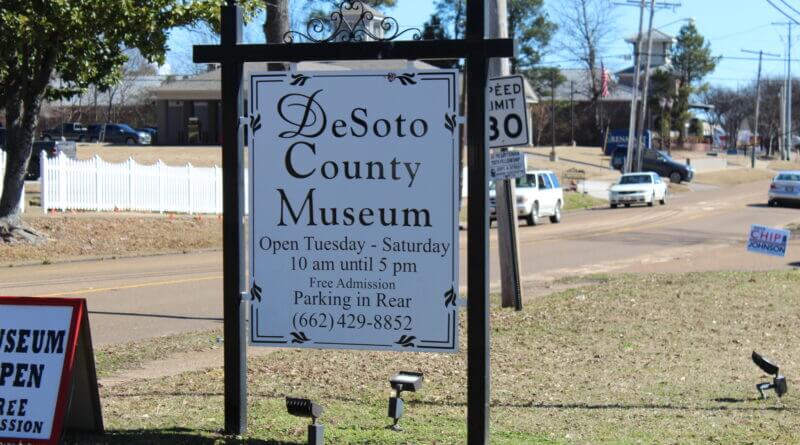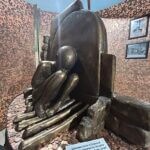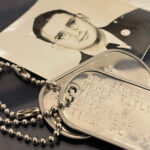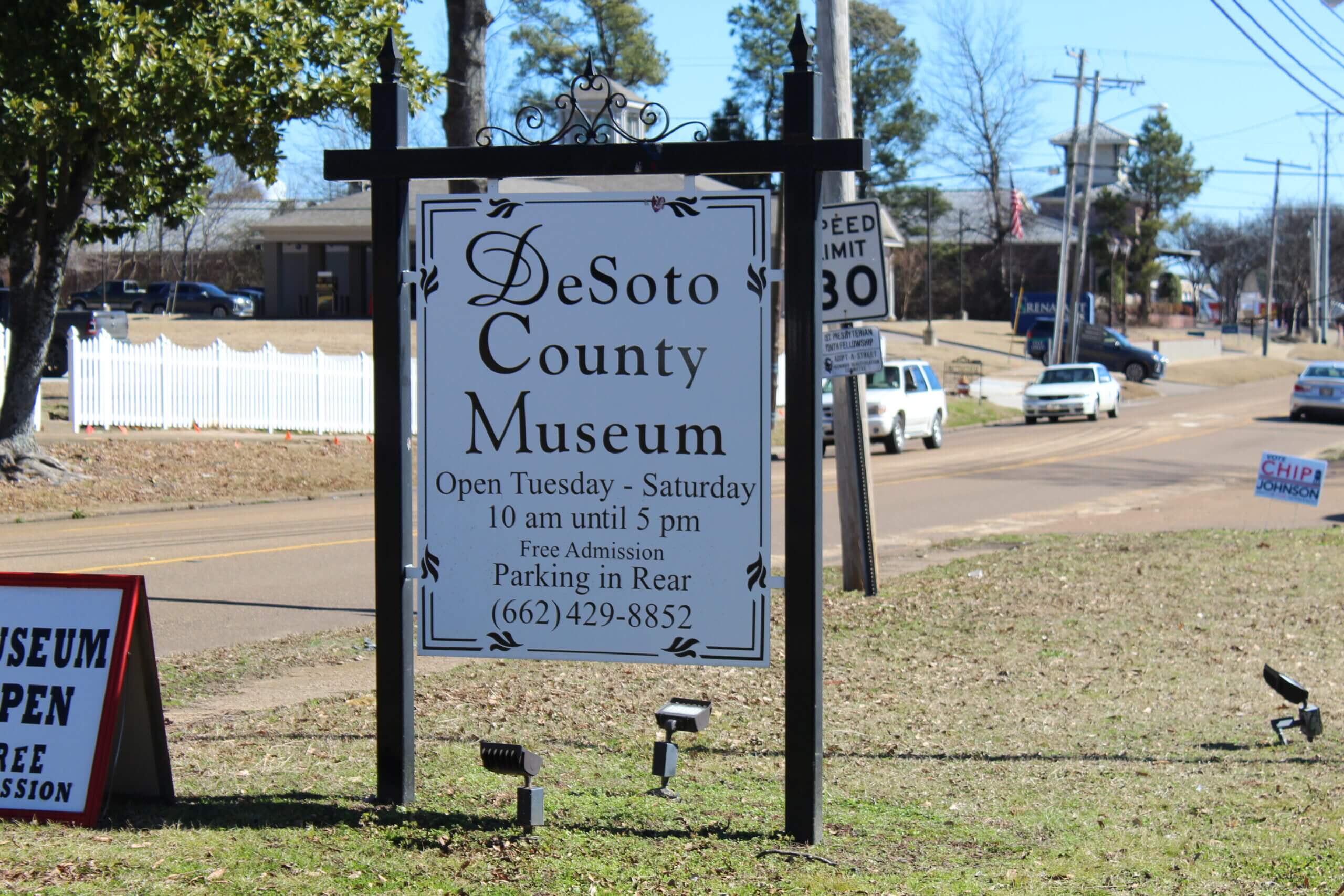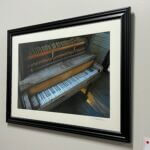New exhibit touches on the children of the Holocaust
A new exhibit at the Historic DeSoto County Museum in Hernando considers the murders and atrocities of Nazi Germany to the Jewish people in the Holocaust through a Jewish child’s eye.
It is the first international exhibit for the facility, considered “Mississippi’s Best Small Museum,” said curator Robert Long. The exhibit, titled, “NO CHILD’S PLAY: Children in the Holocaust – Creativity and Play” connects with the museum’s current Unknown Child Exhibit that features a rare sculpture of an abandoned child who leans against a crematorium door, a replica of the oven doors at Auschwitz.
A number of DeSoto County school children were able to visit the museum exhibit this week and hear from Yad Vashem USA Director of Education Marlene W. Yahalom, PhD about how children dealt with the Holocaust years.
The Unknown Child sculpture was created by Canadian-born artist Rick Weinecke and is at the museum with hopes of a final location being constructed that will have the 1.5 million pennies collected by DeSoto County school children several years ago. The pennies were gathered as a school exercise to represent the 1.5 million children who died in the Nazi ethnic cleansing attempt on the Jews from German society.
“Many Mid-South families had loved ones who lost their lives in the Holocaust,” Long said, noting that Goodman Road in DeSoto County was named for the Jewish Goodman family who came from New York City to DeSoto County in the 1800s and their impact on the area.
The “Pennies Project” and the sculpture come under the Unknown Child Foundation of DeSoto County. The exhibit currently resides at the museum but the foundation hopes to build a permanent memorial, according to Diane McNeil, foundation president.
“This is important that we keep this alive because it (Holocaust) can happen again,” McNeil said. “We’re going to build a permanent memorial soon and launch our fundraising program in the next few months.”
This new exhibit is provided through the American Society for Yad Vashem, established in 1981 by visionary Holocaust survivors and founding chairman Eli Zaborowski, z’l. It promotes a mission of Holocaust education, research, and commemoration and is connected with the World Holocaust Remembrance Center in Jerusalem.
The traveling exhibition was first displayed in 2006 at the United Nations headquarters in New York City.
Yahalom expressed the importance of continuing to learn about the Holocaust, even as many as 90 years after it started.
“We need to be educated,” Yahalom said. “I would say education is the key and the more we learn, the more we realize we need to know more.”
NO CHILD’S PLAY touches on the life and struggles of a Jewish child trying to survive through the Holocaust years. Their methods of survival featured a child’s creativity, fantasy, and play.
Yahalom complimented the Unknown Child Foundation for what it is doing locally to teach people about the tragedy that was the Holocaust.
“I think it’s great that it came on its own, that they had a genuine curiosity and understanding of the obligation to learn and teach about the Holocaust, especially memorializing the children who represent the future,” Yahalom said.
McNeil added that Yad Vashem through Yahalom offers educational material, curriculum and training for educators about the Holocaust.
